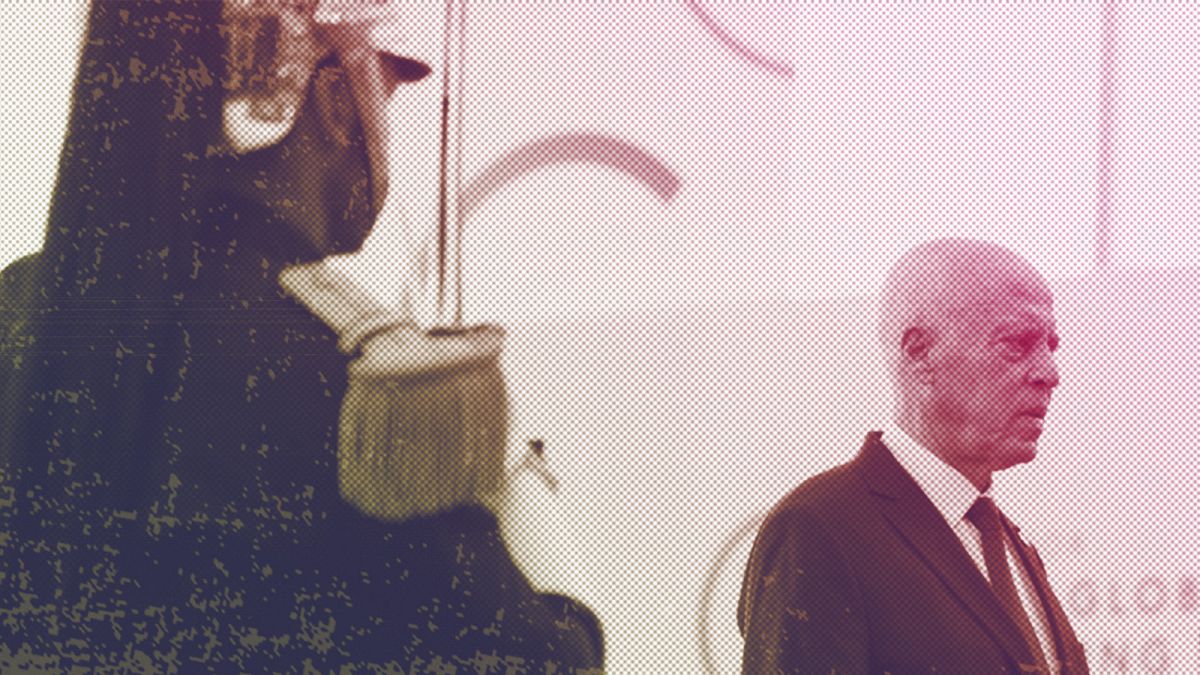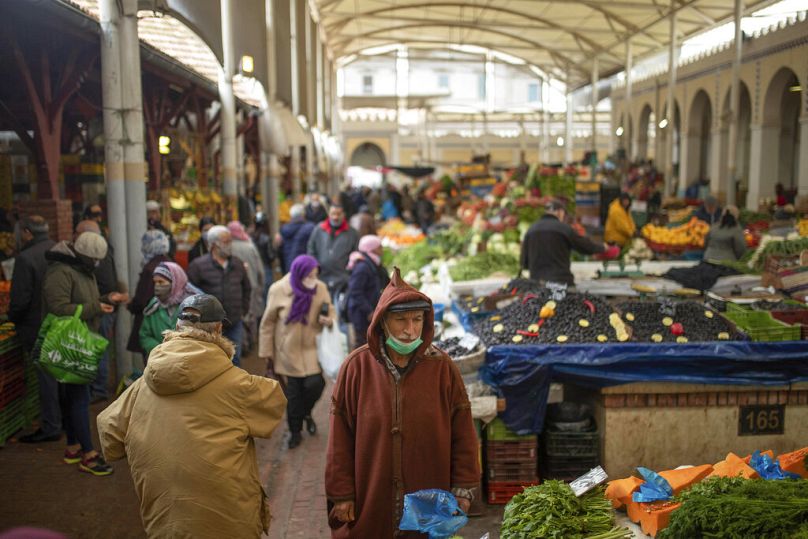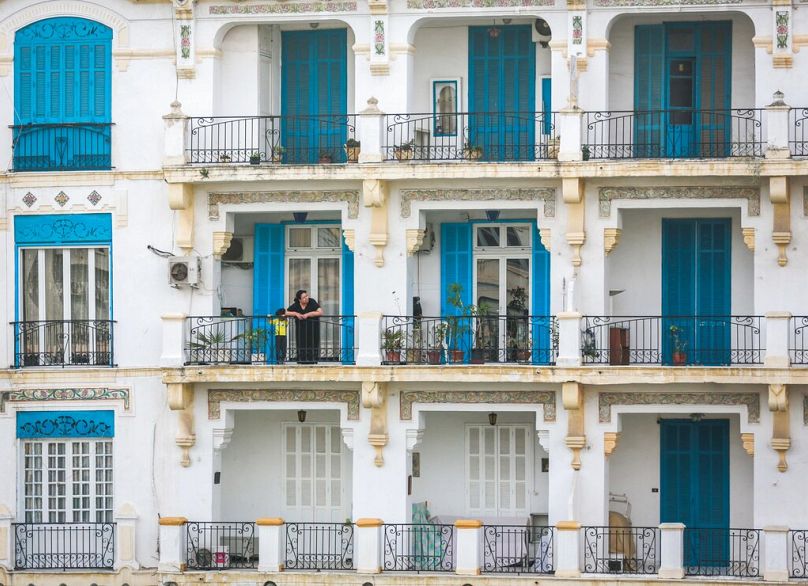Economic reforms are inherently political, but they should be designed to address the concerns and aspirations of the population impacted by them, Timothy Kaldas and Ayoub Menzli write.
As the pressure mounts to break the deadlock over Tunisia’s next IMF program, a number of international actors are rushing to find ways to get a deal signed.
At the behest of Italy’s government, the European Commission has committed what is likely to be a no-strings-attached €100 million to support fighting migration. The commission also announced €900m in additional financing for Tunisia should an IMF deal be approved.
However, the IMF deal in its current form appears to be a non-starter for Tunisia’s President, Kais Saied.
Tunisia’s existing Staff Level Agreement (SLA) with the IMF appears to cling to a tried, tested and failed formula of deep cuts and consumption taxes that could fuel inflation, expand poverty and hamper growth. Rejecting a repeat of regressive anti-growth prescriptions was prudent.
Recent IMF programs in Tunisia failed, in part, because they were politically unsustainable. Austerity measures that disproportionately target the general population while often insulating elites were repeatedly rejected by the public.
Tunisians pressured their leaders to derail planned reforms following the 2013 and 2016 IMF programs in Tunisia.
Repeating this cycle a third time with a similar program is sure to be met with public rejection. So, a new approach is needed.
A more progressive fiscal policy is at the core of the issue
Tunisian civil society has been long advocating for more progressive fiscal policy that includes directing their efforts toward increasing state capacity to collect revenue and it’s time Tunisian authorities and international financial institutions start listening.
Al Bawsala, a leading Tunisian civil society organisation, has been advocating for measures that include restoring the progressivity of the income tax system, investing in the tax collection authority’s capacity, and reducing tax exemptions afforded to large corporations which according to the Tunisian Ministry of Finance reached $1 billion (€915m) or over half of the amount of the newly proposed IMF program.
An analysis conducted by the Tunisian Observatory of the Economy uncovered a sharp decline in the share of direct tax revenue from corporate taxes following cuts to the corporate rate in 2015 and 2021.
The share of direct tax revenue from corporate taxes dropped to 28% between 2015 and 2020, while income tax’s share of direct tax revenue rose to 72%.
The trend continued in 2021 when the corporate tax was further reduced to 15%. Moreover, the cuts to corporate taxes didn’t spur investment. The investment rate declined following the cuts.
Counter-productive measures to create fiscal space simply don't work
The new reform program should avoid cuts to essential food subsidies, which would increase poverty and food insecurity according to Tunisian experts.
Tunisia’s economic reforms can focus on shifting the burden upwards onto the country’s upper middle and upper classes by investing in the state’s capacity to collect progressive sources of tax revenue while eliminating long-abused tax loopholes.
A more progressive program isn’t just more socially just and more likely to secure public buy-in, it’s better economics.
Whether proposed by IMF staff or, more likely Tunisian officials, relying heavily on VAT, other taxes on consumption and aggressive subsidy cuts is bad policy for several reasons.
These measures are counter-productive efforts to create fiscal space. Increasing the cost of goods through both regressive taxes and removal of subsidies intensifies already elevated levels of inflation.
Increased levels of inflation place pressure on the central bank to increase interest rates. However, higher interest rates contribute to higher government expenditures on servicing debt which can consume much of the revenue the state was meant to take in.
Additionally, inflationary measures like VAT and subsidy cuts depress domestic demand which will weaken incentives to invest for local businesses.
Increasingly, it’s clear that cuts to food subsidies represent an untenable assault on Tunisia’s safety net.
Another potential source of revenue can be secured by rolling back previous tax cuts for large corporations. These cuts, which protect the monopolies and cartels controlled by Tunisian economic elites and oligarchs, have three damaging consequences.
It's time to address the illicit influence of Tunisia's oligarchs
First, it deprives the state of revenue without encouraging investment because monopolists don’t have an incentive to invest.
Second, reduced revenue weakens the state’s ability to fund necessary services and pushes the state to depend on regressive sources of revenue such as VAT, and customs taxes.
These types of taxes disproportionately impact women and vulnerable communities according to a recent study by Aswaat Nisaa, a civil society organisation.
Finally, it signals to the public that elites are beneficiaries of economic reforms while the everyday Tunisians are left to shoulder the burden of economic reforms alone.
Without structural reforms addressing the dominance of Tunisia’s oligarchs, other reforms will fall prey to their outsized and illicit influence.
Tunisian academics have shown that previous privatisations mandated by the IMF were used as a mechanism to transfer public wealth to connected elites that reinforced regulatory capture.
Additionally, studies have shown that politically connected businesses are statistically more likely to evade taxes and tariffs.
Including robust reforms to counter this will strengthen the popularity of an economic reform program and target entrenched economic elites instead of vulnerable and middle classes.
A once-in-a-lifetime chance to fix things
This is a historic opportunity to enforce progressive fiscal policies to address Tunisia’s economic challenges.
Economic reforms are inherently political, but they should be designed to address the concerns and aspirations of the population impacted by them.
Tunisia’s economic difficulties are significant but Tunisian researchers and analysts have studied the problems and put forward robust, practical and effective solutions that are not only economically but also politically sustainable.
Timothy Kaldas is the Deputy Director, and Ayoub Menzli is a Nonresident Fellow at The Tahrir Institute for Middle East Policy (TIMEP).
At Euronews, we believe all views matter. Contact us at view@euronews.com to send pitches or submissions and be part of the conversation.



